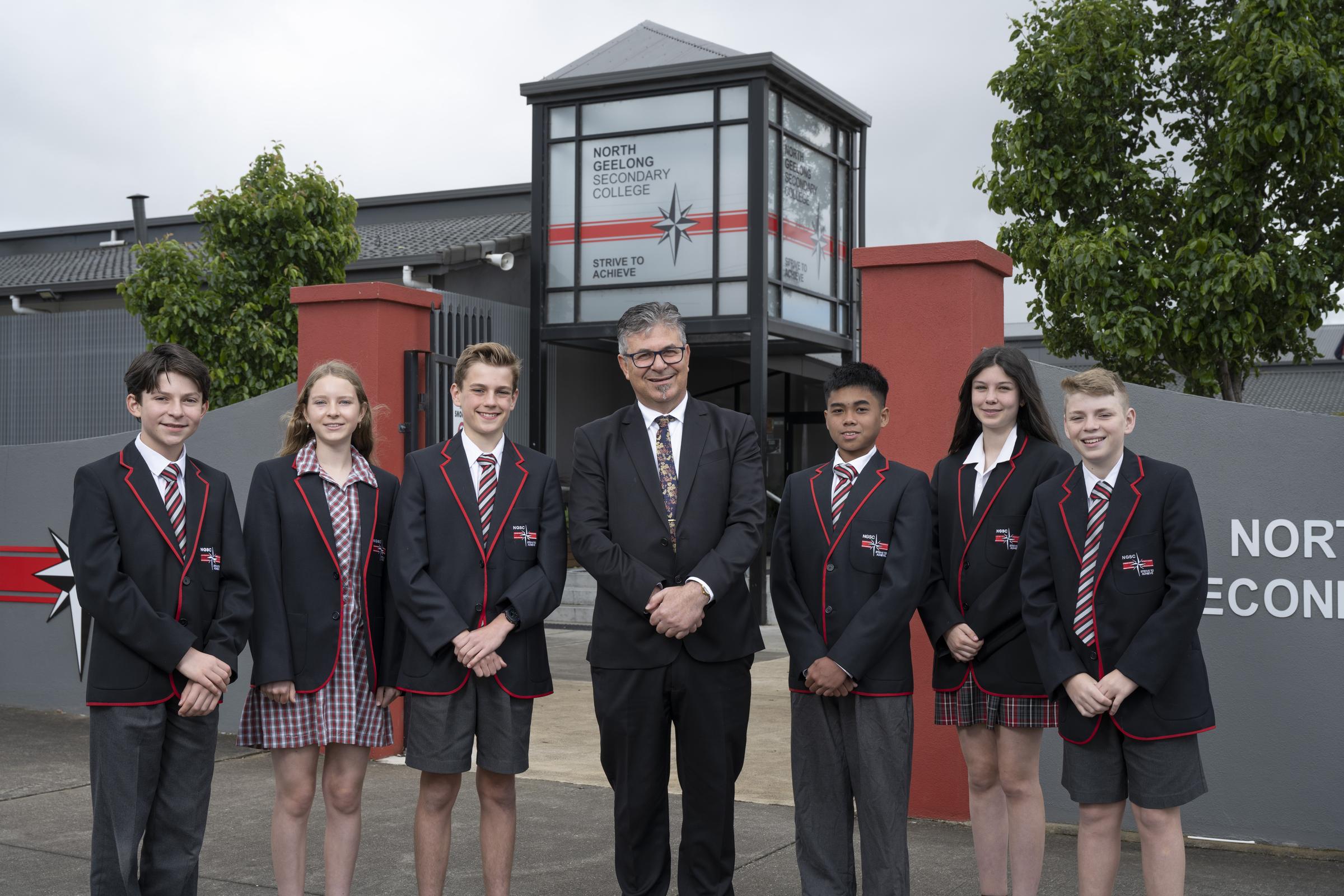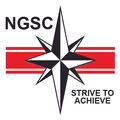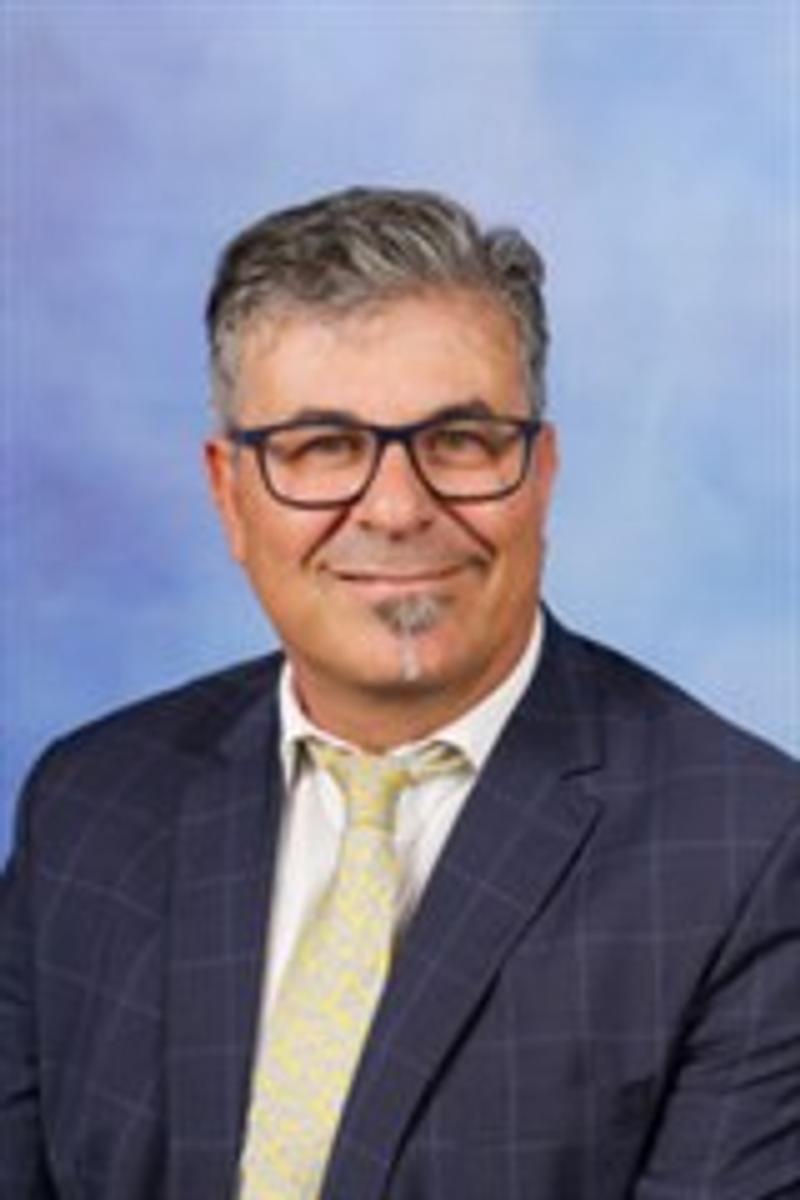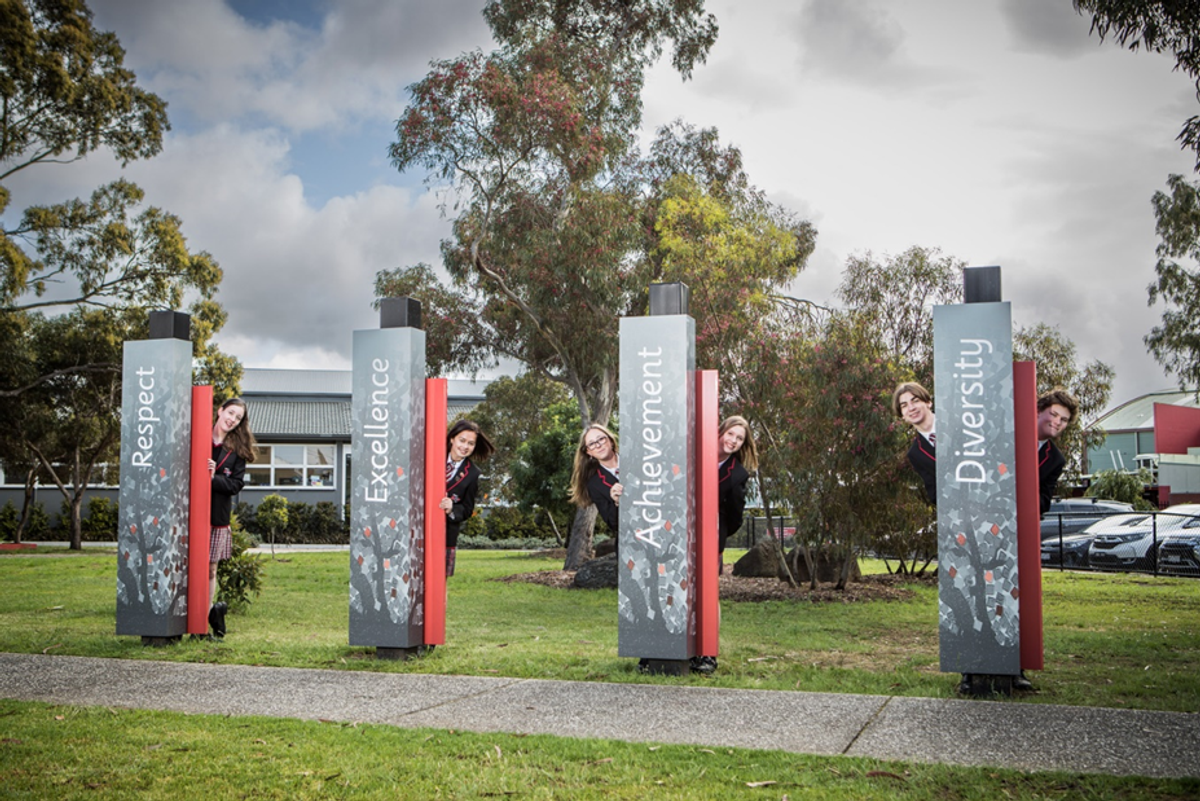PRINCIPAL'S REPORT

Nicolas Adamou
Principal
2023 Key Dates
| 2 Aug | PPD (Teacher Professional Practice Day) Student Free Day
|
| 15 Aug | School Council Meeting
|
| 16 Aug | Parent/Teacher Conferences - Student Free Day, however, students to attend with Parents.
|
| 22/23/24 Aug | School Production "High School Musical"
|
| 31 Aug | Curriculum Day Student Free Day
|
| 20 Oct | Multicultural Day
|
| 25 Oct | Geelong Cup Public Holiday
|
| 15 Sep | Last Day Term 3
|
| 2 Oct | First Day Term 4
|
Welcome to Term 3
Welcome back to another exciting term at North Geelong Secondary College! I hope you have had a restful and rejuvenating break. I wanted to take a moment to share some thoughts and words of encouragement as we embark on this new journey together, with a new term and in particular a new semester.
First and foremost, I want to commend each and every one of you for your dedication, resilience, and hard work, during Semester One. I trust that all parents and guardians have logged on to the school portal and received their children’s reports, celebrated their achievements, and discussed areas for improvements.
The beginning of a term is always a good time to reflect on the previous performance and set new goals to be achieved for the remaining of the academic year.
Any parent/guardian who for some reason has not been able to log onto the school parent portal (Compass) to receive their child’s report, I urge you to immediately contact the school to be provided with support in order to be able to receive your child’s Semester One report.
High school is a time of growth and discovery. It is an opportunity to explore new subjects, uncover hidden talents, and build lasting friendships. Embrace these moments, seize the chances to step out of your comfort zone, and make the most of the resources and support available to you.
Remember that your education extends beyond the classroom. Engage in extracurricular activities, clubs, and sports that align with your interests and passions. These experiences not only enhance your skills but also provide opportunities for personal growth and development.
As your principal, I encourage you to set goals for yourself this term. Whether it is achieving academic excellence, improving your time management skills, or getting involved in community service, strive for personal growth and progress. Do not be afraid to ask for help when needed, and remember that your teachers and I, are here to support you every step of the way.
Finally, let's build on our positive and inclusive school environment. Respect and kindness are the foundation of our interactions. Embrace diversity, celebrate each other's achievements, and look out for one another. Together, we can create a supportive community that uplifts and empowers every student.
I have complete faith in your ability to excel, not just academically but also as compassionate and responsible individuals. This term holds countless opportunities for you to shine, grow, and make a difference. I am excited to witness your accomplishments and be a part of your journey.
Wishing you all a remarkable term filled with growth, success, and memorable experiences.
Upcoming Changes to NAPLAN reporting
The 2023 NAPLAN results for students have been released as of Monday 17 July. By now you should have received your Year 7 and 9 children’s NAPLAN results in the mail.
I am writing to inform you of some changes to this year’s reporting. These are changes being introduced nationally by the Australian Curriculum Assessment and Reporting Authority (ACARA).
NAPLAN will continue to measure student achievement in numeracy, reading, writing, spelling, and grammar and punctuation but the results will now be presented in 4 proficiency levels:
These are:
- exceeding
- strong
- developing
- needs additional support.
This change will give schools, parents and carers clearer information that details student achievement against new proficiency levels.
Students’ NAPLAN reports will continue to show how they are tracking against their peers and provide an indication of their skill levels against national averages and where we would expect them to be in order to get the most out of schooling. This provides valuable information to teachers about how we can continue to support your child.
Each set of NAPLAN results is an important milestone, but it is also important that students know that one result does not define them. These results are about making sure every student gets the support they need so they can continue to get the best from their learning.
When we provide you with your student’s results, you will also receive information about what the new proficiency levels mean.
Please contact the school, to speak to a Principal Class Officer, with any questions about these changes.
Child Safety Code of Conduct
NGSC is committed to the safety and wellbeing of children and young people. Our school community recognises the importance of, and a responsibility for, ensuring our school is a safe, supportive, and enriching environment which respects and fosters the dignity and self-esteem of children and young people, and enables them to thrive in their learning and development.
This Code of Conduct aims to protect children and reduce any opportunities for child abuse or harm to occur. It also assists in understanding how to avoid or better manage risky behaviours and situations. It is intended to complement child protection legislation, Department policy, school policies and procedures and professional standards, codes or ethics as these apply to staff and other personnel.
The Principal, and school leaders of NGSC support the implementation and monitoring of the Code of Conduct, and will plan, implement and monitor arrangements to provide inclusive, safe and orderly schools and other learning environments. The Principal and school leaders will also provide information and support to enable the Code of Conduct to operate effectively.
All staff, contractors, volunteers and any other member of the school community involved in child-related work are required to comply with the Code of Conduct by observing expectations for appropriate behaviour below. The Code of Conduct applies in all school situations, including school camps and in the use of digital technology and social media.
Acceptable behaviours
As staff, volunteers, contractors, and any other member of the school community involved in child-related work individually, we are responsible for supporting and promoting the safety of children by:
- upholding the school’s statement of commitment to child safety at all
- treating students and families in the school community with respect both within the school environment and outside the school environment as part of normal social and community activities.
- listening and responding to the views and concerns of students, particularly if they are telling you that they or another child has been abused or that they are worried about their safety/the safety of another child
- promoting the cultural safety, participation and empowerment of Aboriginal and Torres Strait Islander students
- promoting the cultural safety, participation and empowerment of students with culturally and/or linguistically diverse backgrounds
- promoting the safety, participation and empowerment of students with a disability
- reporting any allegations of child abuse or other child safety concerns to the school’s leadership
- understanding and complying with all reporting or disclosure obligations (including mandatory reporting) as they relate to protecting children from harm or abuse.
- if child abuse is suspected, ensuring as quickly as possible that the student(s) are safe and protected from harm.
Unacceptable behaviours
As staff, volunteers, contractors, and any other member of the school community involved in child-related work we must not:
- ignore or disregard any concerns, suspicions or disclosures of child abuse
- develop a relationship with any student that could be seen as favouritism or amount to ‘grooming’ behaviour (for example, offering gifts)
- exhibit behaviours or engage in activities with students which may be interpreted as abusive and not justified by the educational, therapeutic, or service delivery context
- ignore behaviours by other adults towards students when they appear to be overly familiar or inappropriate
- discuss content of an intimate nature or use sexual innuendo with students, except where it occurs relevantly in the context of parental guidance, delivering the education curriculum or a therapeutic setting
- treat a child unfavourably because of their disability, age, gender, race, culture, vulnerability, sexuality or ethnicity.
- communicate directly with a student through personal or private contact channels (including by social media, email, instant messaging, texting etc) except where that communication is reasonable in all the circumstances, related to school work or extra-curricular activities or where there is a safety concern or other urgent matter
- photograph or video a child in a school environment except in accordance with school policy or where required for duty of care purposes
- in the school environment or at other school events where students are present, consume alcohol contrary to school policy or take illicit drugs under any circumstances.
IMPORTANT NOTE TO PARENTS
Whilst we welcome and encourage parents to attend the school for a wide range of reasons, it is important that all visits to the school come through our front office. Parents, guardians and visitors to the school are not to go directly to other areas of the school including different wings, classrooms or the technical support office. Our office staff welcomes, will handle all parent and visitor enquiries and make the appropriate arrangements for you. Thank you for your cooperation on this matter.
Student accident insurance, ambulance cover arrangements and private property brought to schools
Parents and Guardians are reminded that the Department does not provide personal accident insurance or ambulance cover for students.
Parents and guardians of students, who do not have student accident insurance/ambulance cover, are responsible for paying the cost of medical treatment for injured students, including the cost of ambulance attendance/transport and any other transport costs.
In some circumstances, medical or other expenses will be paid by the Department where it is assessed that it is likely, in all the circumstances, that the Department is liable for negligent (careless) acts or omissions of its staff/volunteers.
Student accident insurance/ambulance cover policies are available from some commercial insurers and can be obtained by school councils on a whole-of-school basis, or by parents/guardians for individual students.
Private property brought to school by students, staff or visitors is not insured and the Department does not accept any responsibility for any loss or damage.


